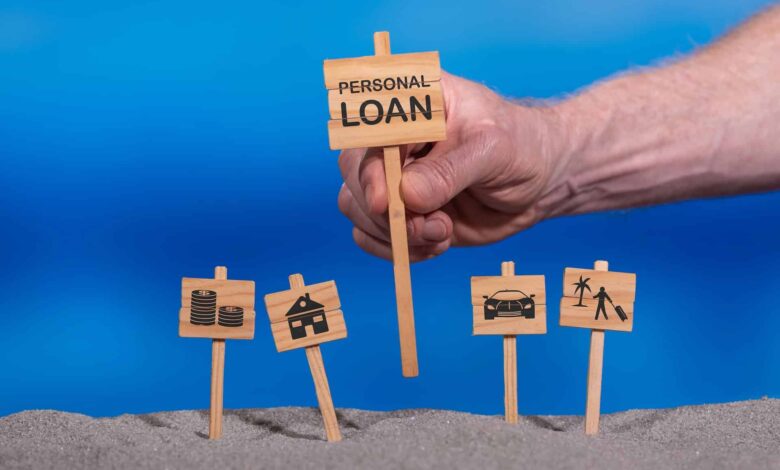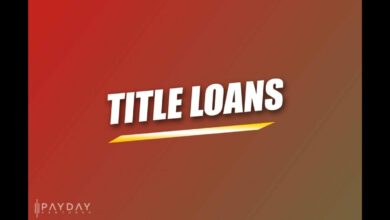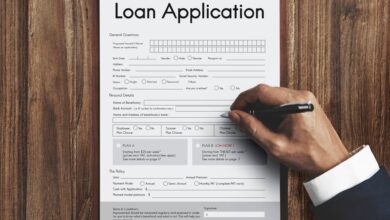Building Credit With Personal Loans

When we think of personal loans, the first thing that comes to mind is often debt. But what if I told you that personal loans could be a powerful tool to help you build credit? That’s right—when used wisely, personal loans can do more than just provide quick access to funds; they can also boost your credit score in ways you might not have considered. And if you’re dealing with high-interest credit card debt, looking into the best credit card consolidation loans could be the first step towards improving your financial health and building your credit at the same time.
Understanding the Role of Personal Loans in Credit Building
Personal loans are often seen as a last resort, but they can actually be a strategic financial tool. When managed properly, they can contribute positively to several key areas that affect your credit score. These areas include payment history, credit mix, and credit utilization ratio, all of which are crucial for maintaining a healthy credit profile.
Payment History: The Power of On-Time Payments
One of the most significant factors in your credit score is your payment history, which accounts for about 35% of the total. Every time you make an on-time payment on a personal loan, it’s recorded on your credit report. Over time, a consistent record of on-time payments can significantly boost your credit score. This is especially important if you’re starting with little or no credit history, as it helps establish you as a reliable borrower.
Credit Mix: Diversifying Your Credit Portfolio
Credit mix, or the variety of credit types you have, makes up about 10% of your credit score. Lenders like to see that you can manage different kinds of debt, such as revolving credit (like credit cards) and installment credit (like personal loans). Adding a personal loan to your credit profile can improve your credit mix, which in turn can give your credit score a nice boost.
Credit Utilization Ratio: Managing Your Debt Responsibly
Your credit utilization ratio—the amount of credit you’re using compared to your total credit limit—is another critical factor in your credit score, making up around 30%. Personal loans can help lower your credit utilization ratio by paying off high-interest credit card debt. When you use a personal loan to consolidate your credit card balances, you reduce the amount of revolving credit you’re using, which can lower your utilization ratio and improve your credit score.
Using Personal Loans to Consolidate Debt
One of the most practical ways to use a personal loan for building credit is through debt consolidation. High-interest credit card debt can be a significant burden, not just financially but also on your credit score. Consolidating this debt with a personal loan can simplify your finances and improve your credit in several ways.
Simplify Your Payments
By consolidating multiple credit card balances into a single personal loan, you reduce the number of payments you need to keep track of each month. This simplicity can help ensure you never miss a payment, which is crucial for maintaining a positive payment history.
Lower Interest Rates
Personal loans often come with lower interest rates compared to credit cards. By paying off your credit card debt with a lower-interest personal loan, you can save money on interest payments, allowing you to pay off your debt faster. Additionally, as you pay down the loan, your reduced credit card balances will lower your credit utilization ratio, which can lead to a higher credit score.
Avoid the Minimum Payment Trap
Credit cards are notorious for encouraging minimum payments, which can keep you in debt longer and result in paying more interest over time. With a personal loan, you have a fixed repayment schedule, which forces you to pay off the loan in full by the end of the term. This disciplined repayment structure can help you get out of debt quicker and improve your credit score as a result.
The Long-Term Benefits of Building Credit with Personal Loans
While the immediate goal of using a personal loan might be to address a specific financial need, the long-term benefits for your credit score shouldn’t be overlooked. A better credit score opens up a world of opportunities, from qualifying for lower interest rates on future loans to getting approved for higher credit limits.
Improved Loan Eligibility
As your credit score improves, you become eligible for better loan terms, whether it’s a mortgage, auto loan, or another personal loan. Lenders are more likely to offer you lower interest rates and higher loan amounts if you have a strong credit history, which can save you thousands of dollars over the life of a loan.
Better Credit Card Offers
With a higher credit score, you’ll also find yourself qualifying for better credit card offers, including cards with rewards programs, cash back, and lower interest rates. These benefits can make managing your finances more rewarding and less costly.
Increased Financial Security
Ultimately, building a strong credit score with the help of personal loans can lead to greater financial security. With better credit, you have more options and flexibility when it comes to borrowing money, whether for an emergency, a major purchase, or an investment in your future.
In Conclusion
Building credit with personal loans is about more than just borrowing money—it’s about taking control of your financial future. By understanding how personal loans impact your credit score through payment history, credit mix, and credit utilization ratio, you can use them as a tool to improve your creditworthiness. And if you’re struggling with high-interest credit card debt, exploring the Best Credit Card Consolidation Loans could be the key to not only managing your debt but also boosting your credit score in the process. Remember, the goal isn’t just to get out of debt; it’s to build a stronger, more resilient financial foundation for the future.



